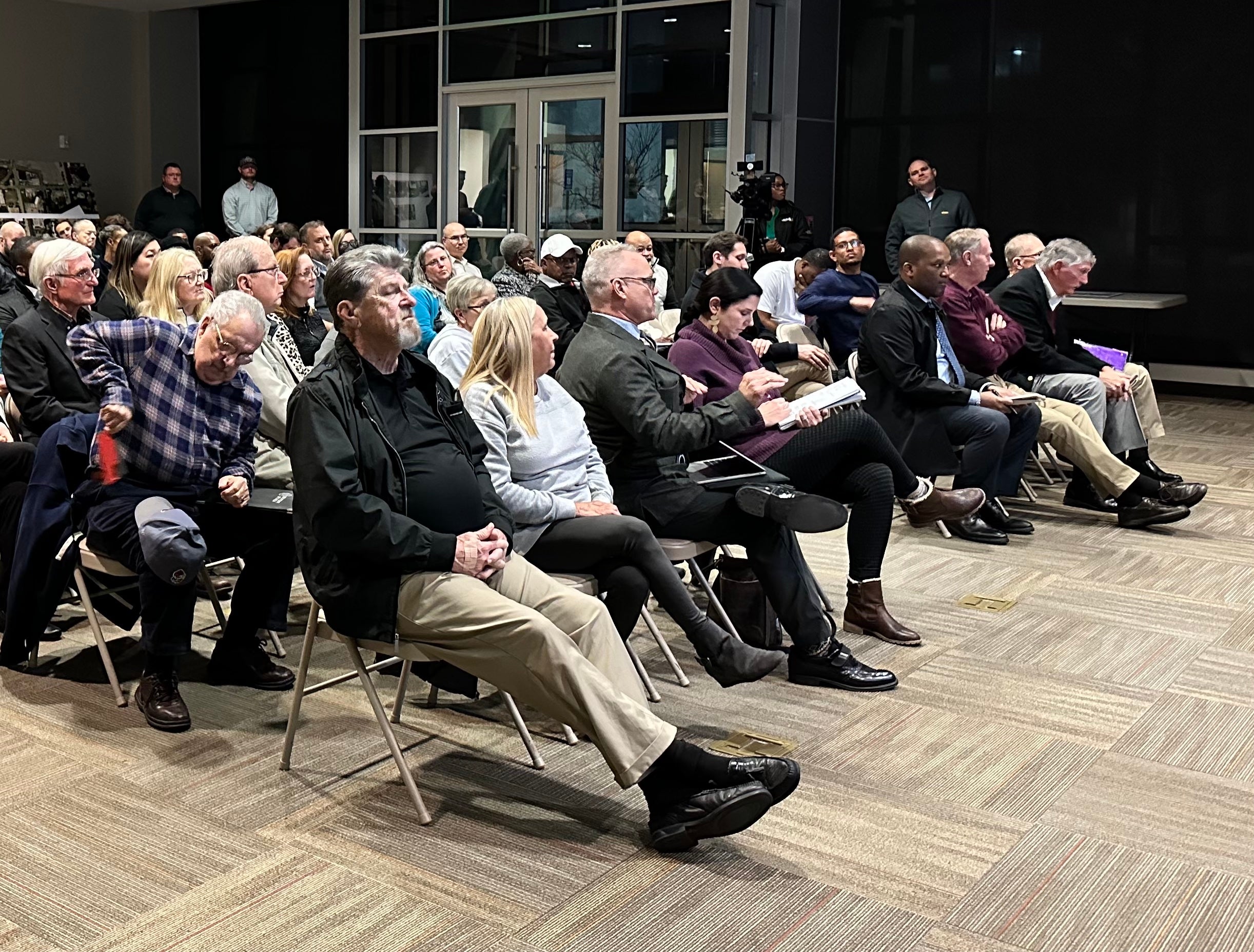A skeptical crowd heard updates Tuesday on the downtown streetscape overhaul approved by voters a decade ago.
With work set to begin after this year’s Masters Tournament, project engineers described the intermittent road and block closures on 13th, Telfair, Broad and Greene streets needed to complete the projects.
One of about 100 who turned out for the meeting, downtown resident Kevin de l’Aigle questioned the city’s ability to keep the public informed.
“You have the Imperial Theatre, the Miller Theater, the symphony. You have untold businesses with people not being able to access their businesses, and it’s irritating for them to do work along all these corridors,” de l’Aigle said. “How are you going to communicate to them and to their patrons, to people who live downtown and people who spend money downtown, how you are going to be closing off these corridors?”
The 13th Street work, not including the new bridge into South Carolina, will require “relatively short” road closings, said Dallas Suggs, region manager for Reeves Construction.
MORE: City of Augusta and Gold Cross EMS agree to a month to month contract
But the Telfair project, which includes extensive underground drainage work and six sections of brick-paver crosswalks, will require multiple month-long block closings, Suggs said.
“There is significant underground work that has to be done,” he said. “About 95% of that drainage is in the road, under the existing asphalt.”
Augusta’s downtown streetscape overhaul was funded through the Transportation Investment Act, a 1% regional sales tax voters approved in 2012. The downtown projects were slated for the final phase of the tax.

The tax was expected to raise $25 million for Broad Street, $19 million for Telfair, $10 million for Greene and additional funds Fifth, Sixth and 13th Streets and James Brown Boulevard.
Voters approved a second round of the T-SPLOST in 2020 that includes another $20 million for Broad Street.
A rough timeline has the set of projects taking around three years to complete, said Hameed Malik, director of Augusta Engineering and Environmental Services.
Broad and Greene are two-phase projects, with sections between Fifth and 15th Streets coming before the portions between Fifth and East Boundary and 15th and Milledge Road, Malik said.
A Greene Street resident asked if traffic calming is part of the plan. Augusta Traffic Engineer John Ussery said elevated crosswalks that resemble speed humps will be used, particularly around schools.
For Broad Street, the largest of the downtown projects, the city is still in negotiations with a contractor, Ussery said.
MORE: Howard collapses from dehydration at news conference
That project will likely be done in two sections; the inside lanes first then the outside lanes, he said.
The recessed parking wells in the 600-900 blocks of Broad will be raised to street level, and parking spaces re-allocated into “pockets” of five or six cars each, set off with landscaping, he said.
Downtown developer Bryan Halterman asked about the status of trees that currently line the downtown streets.
Ussery said many were “older” and in their final life stages, but the “wrong kind” of trees for a downtown streetscape. De l’Aigle questioned their age, saying there were no trees on Broad when he was growing up.
The majority will be removed, but in the future, “there should be as many trees as there are now,” but not fully grown, Ussery said.
Ussery described the transformation of Broad Street last year to include a multi-modal corridor accessible to passenger vehicles with separate bike lanes and pedestrian paths, all ADA-accessible.
Bike lanes will be elevated with a curb separating them from the road, with small ramps at each cross-street, he said Tuesday.
De l’Aigle said he was impressed with the turnout for the forum but frustrated by the shortage of information.
“I”m very encouraged with the number of people here tonight. People from downtown and people from Augusta are coming because their needs aren’t being met. We’re looking for help and answers.”
Susan McCord is a staff writer with The Augusta Press. Reach her at susan@theaugustapress.com












